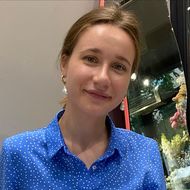- A
- A
- A
- ABC
- ABC
- ABC
- А
- А
- А
- А
- А
HSE University Hosts Third Summer School on Machine Learning in Bioinformatics
Between August 23rd and 25th, the HSE Faculty of Computer Science held its annual summer school on machine learning in bioinformatics. After two years of being held online, the school returned to an offline format for this year. Over three days, more than 120 participants attended lectures and seminars by leading experts in the field from institutions such as HSE University, Skoltech, AIRI, MSU, MIPT, Genotek, and Sber Artificial Intelligence Laboratory.
Machine learning enables researchers to process the ever-increasing amounts of biological data, and this vibrant field means there is a growing demand for highly skilled biology and bioinformatics analysts. The objective of this summer school was to help learners gain a better understanding of the topic’s many various aspects. This year, the areas of focus included applied bioinformatics, the bioinformatics of DNA, RNA and proteins, elementary genomics, modern methods of data analysis, and molecular biology.
Below, event participants and organisers share their impressions of the programme.

Ekaterina Antipushina, participant, Master's student at Skoltech
'This is my first time attending the summer school, and I’ve been impressed by its format. Thanks to the speakers, I now have a better understanding of what their firms and companies are working on. The choice of speakers was superb, and it was really useful to hear lectures by experts in the field.
I particularly enjoyed the second day! I hadn’t previously known much about AIRI before, beyond hearing something about their AI school. The time we spent with their team during the summer school was truly productive. I would also like to mention Alexander Rakitko – it was thrilling to learn more about their work at Genotek'.

Elizaveta Lukyanchikova, participant, Bachelor's student at Moscow Timiryazev Agricultural Academy / Research Institute of Agricultural Biotechnology
'I found the school highly useful and informative. All the sessions I attended were interesting in their own way. My university does not offer courses in bioinformatics, let alone neural networks, and it has long been my ambition to study these topics. Each session of the summer school brought new insights and ideas. I shall also remember discussions with leading experts and researchers, inspiring us to grow and to move forward. I intend to use this learning in my studies and my work'.

Maria Poptsova, main organiser of the summer school, academic supervisor of the Data Analysis in Biology and Medicine master's programme, head of the International Laboratory of Bioinformatics of the HSE Faculty of Computer Science
'People usually come to the field of bioinformatics in one of two ways: either they are IT professionals who study biology in order to learn how to apply the tools they already know to new problems, or they have a background in biology and study computer science to learn new ways of solving problems they have already identified. The goal of the summer school is to synchronise the knowledge of aspiring bioinformaticians and to help them navigate this field.
We are delighted that this year we were able to bring together more than a hundred people at one of HSE's building in Pokrovsky Boulevard for lectures, seminars and discussions with interesting and enjoyable speakers. Of course, our previous schools held online were also interesting, but offline has its own special charm. I would like to thank everyone who contributed to making this school happen: our wonderful lecturers, the organisers and, of course, the students.'

Veniamin Fishman, summer school lecturer, AIRI Artificial Intelligence Research Institute
'Enormous thanks to the organisers for having gathered such a lively audience! Giving my lecture was really interesting, and I particularly enjoyed the students' response – I even had to limit the number of questions for reasons of time (and answered a dozen more questions later over email). Perhaps around a hundred people, some without any background in biology, successfully solved a problem which many biologists struggle with!
The only thing I would change in the future is the possibility of broadcasting sessions via Zoom: there were many interesting reports which I would have loved to hear given the opportunity. But it is not about going completely online, because nothing can replace students' eyes shining with interest and our live interaction during the sessions!'